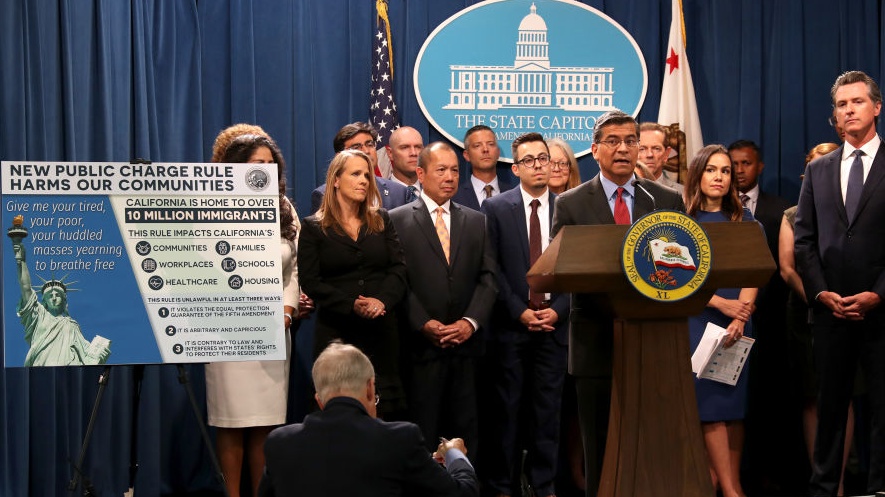A federal judge in New York has temporarily blocked a plan put forward by the Trump administration that would deny green cards to many immigrants who use Medicaid, food stamps and other government aids.
The Trump administration's rule change was scheduled to go into effect October 15 and was announced by Acting Director of the U.S. Citizenship and Immigration Services Ken Cuccinelli in August. Cuccinelli argued that the rule change would guide immigrant populations toward self-sufficiency.
"We want to see people coming to this country who are self-sufficient,” Cuccinelli said in the announcement of the intended change. “That’s a core principle of the American dream. It’s deeply embedded in our history, and particularly our history related to legal immigration.”
In his ruling, according to an Associated Press report, U.S. District Judge George Daniels said that allowing the policy to go into effect now would have a significant impact on "law-abiding residents who have come to this country to seek a better life."
At nearly the same time, another federal judge in California also blocked the policy from taking effect, but that order was geographically limited to specific states that were involved in the initial case. The two rulings have been seen as a victory for the groups who brought the lawsuits forward.
"Today's decision marks a major defeat for the Trump administration's unlawful tactic to impose a racist wealth test on our immigration system," said Javier Valdés, Co-Executive Director at Make the Road New York, which was among the plaintiffs, in a statement reported by NPR. "People should be able to access vital and life-saving benefits without having to worry if they could remain with their families."
This rule change was just one of many proposed by the current administration to limit both legal and illegal immigration into the U.S. Last week, President Trump signed a proclamation that barred entry for legal immigrants who cannot prove they will have either health care coverage or the means to pay for it within 30 days of their arrival into the country.
